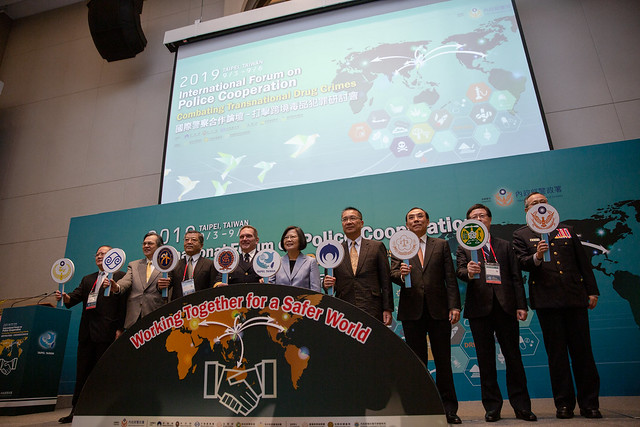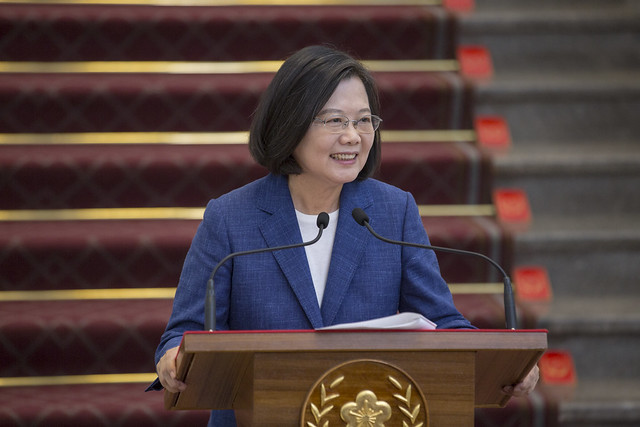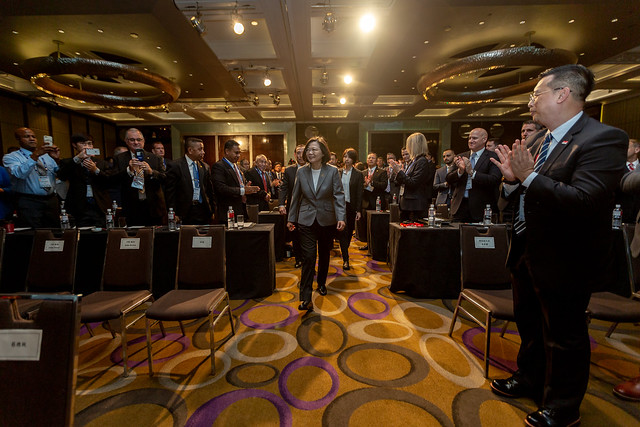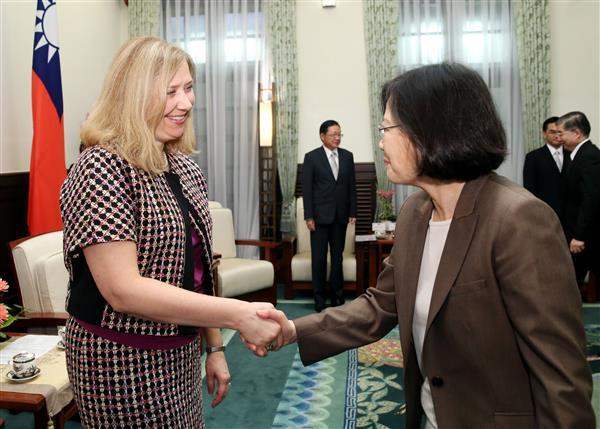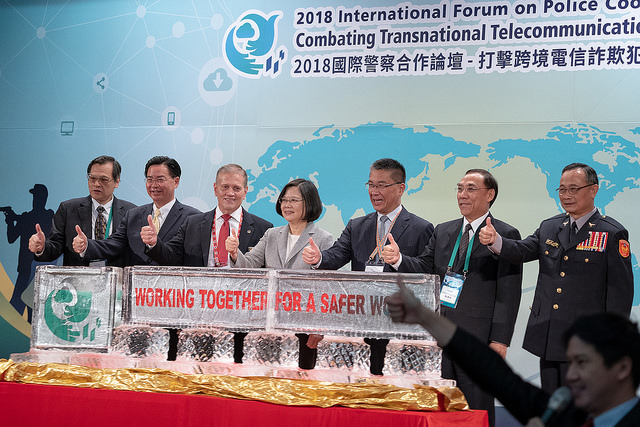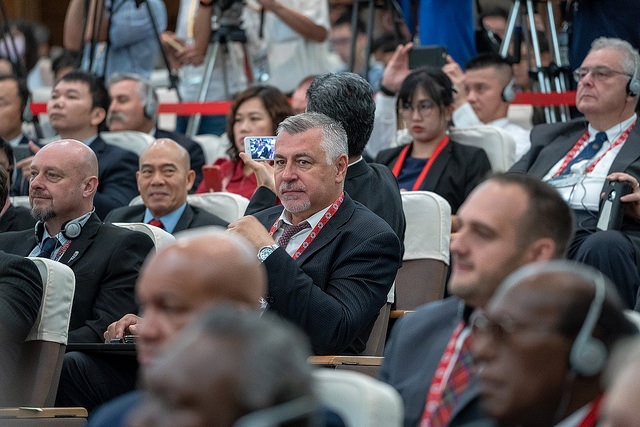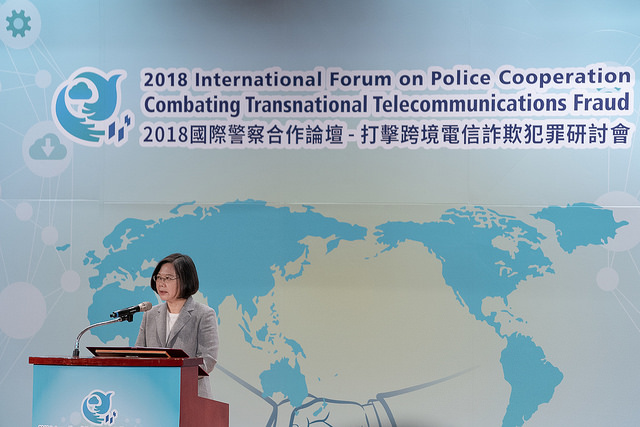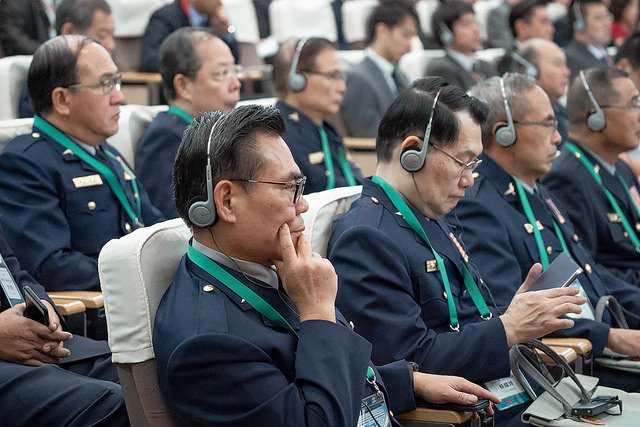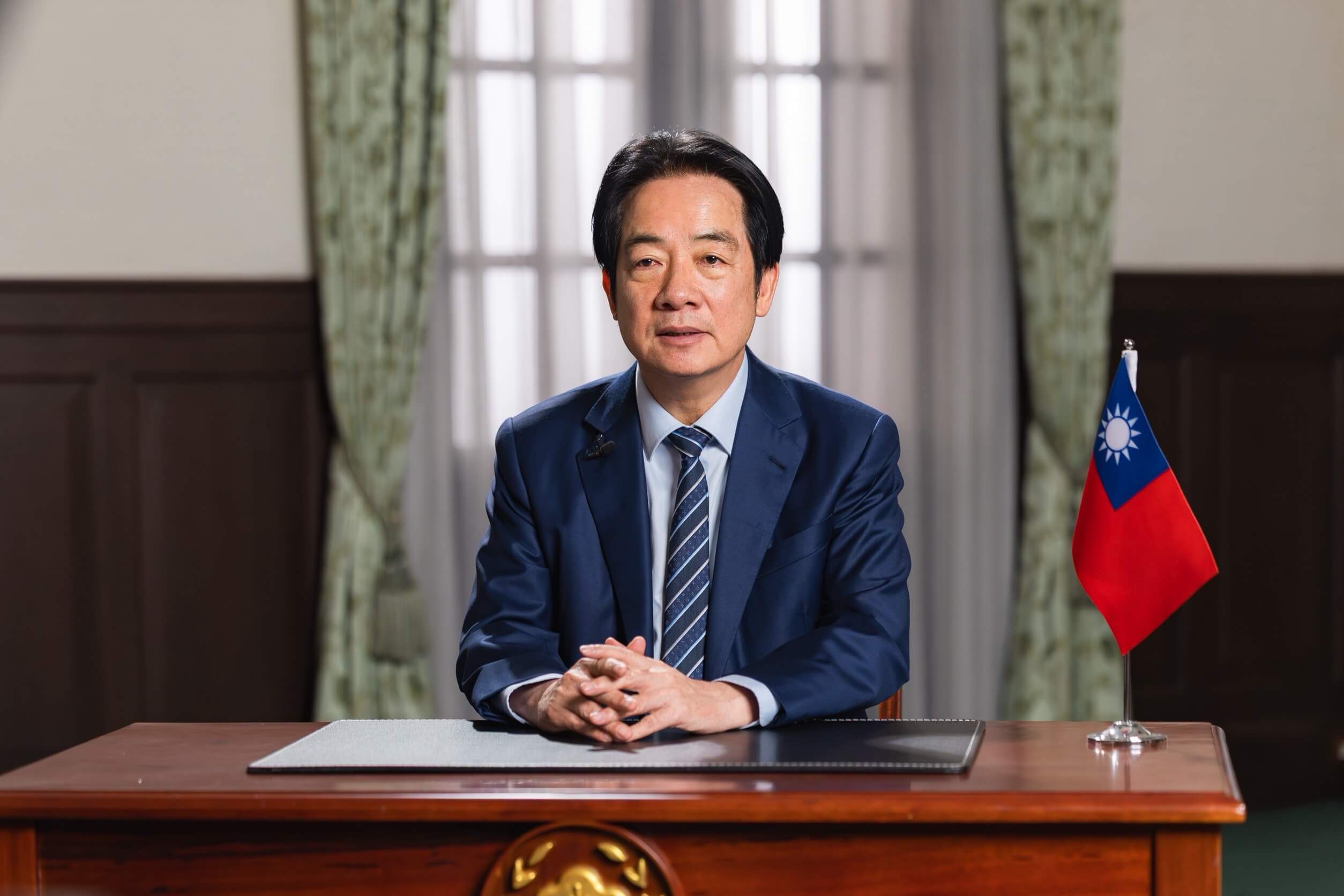News & activities
 News releases
News releases
On the morning of September 19, President Tsai Ing-wen attended the International Forum on Police Cooperation—Combating Transnational Telecommunications Fraud. She expressed hope that the related government agencies will upgrade the overall anti-fraud network, strengthen international cooperation and exchanges, and fulfill our joint responsibility to defend global security. The president also looks forward to strengthening connections with other countries to forge a stronger international security network.
In remarks, President Tsai stated that today was the opening ceremony of the International Forum on Police Cooperation. The ever-changing methods used to commit fraud, and the spread of crime rings to countries around the world, have made investigating these crimes and arresting the perpetrators far more difficult. The theme chosen for this forum, "Combating Transnational Telecommunications Fraud," speaks to Taiwan's active fight against fraud, and desire to strengthen global connections so that we can strengthen connections with other countries to forge a stronger international security network.
The president pointed out that over 100 participants from almost 40 countries participated in the forum. On behalf of the government and the people of Taiwan, she extended a warm welcome to the guests, many of whom have travelled a long way to Taiwan. President Tsai also expressed her utmost respect to the contributions that the distinguished guests from industry, government, and academia have made to combating transnational fraud. She believes that over the next two days, their discussions and exchanges will generate effective response strategies, and create a platform for future cooperation and exchanges.
President Tsai stated that the government colleagues from the Ministry of the Interior, Ministry of Foreign Affairs, Ministry of Justice, and Mainland Affairs Council were all on hand. That made the forum an integrated, cross-departmental effort, which shows that the Taiwan government takes combating transnational fraud seriously.
The president set three goals for combating transnational fraud. The first goal is to upgrade the overall anti-fraud network. She noted that over the past two years, Taiwan has set up an Anti-Fraud Command Center, which is designed to promote cross-ministry, cross-agency, and cross-discipline cooperation to carry out all anti-fraud tasks.
To raise awareness, the government is running front-line and neighborhood education programs to help the public fight fraud. To stop fraud at its source, we have integrated resources from all sectors; blocked fraudulent telecommunications from overseas; set up early-warning and joint defense mechanisms; and made protecting personal data issues a high priority. At the same time, the government has amended the relevant laws to deter fraud, and severely punish the perpetrators. These initiatives have helped establish an anti-fraud network. So the president expressed hope that related government agencies will continue to strengthen and upgrade their efforts to intensify its effectiveness.
President Tsai stated that the second goal, another major reason for the gathering, is to strengthen international cooperation and exchanges. In an age of globalization, crime crosses national borders, and this is a challenge that all countries must address together.
Since last year, many fraud operations have been discovered in third jurisdictions thanks to cooperation between law enforcement agencies in Taiwan and other countries. This year, for the first time, a telecommunications fraud operation involving over 100 people was also detected in Eastern Europe. The president then expressed hope that during the forum Taiwan can exchange success stories in fraud prevention and detection with other countries to refine our investigation methods.
The third goal, President Tsai said, is to fulfill our joint responsibility to defend global security. She stated that Taiwan is a responsible member of the global community and will continue to sign agreements and MOUs with countries around the world covering mutual judicial assistance, the prevention and control of money laundering and human trafficking, and police cooperation. We will also strengthen our partnerships with law enforcement agencies in other countries. The participants at the forum are all Taiwan's cooperative partners, the president said, and she hopes that everyone will work together to protect the property and security of citizens in countries around the world.
President Tsai emphasized that when addressing global crime, Taiwan is always a willing partner, ready to play an active role, and an essential link in the global security network. We have the will, and the ability, to contribute much more to the world. She thanked all the countries who have supported and assisted Taiwan's participation in international affairs, and hopes that the guests at the forum will all give Taiwan's participation in international police cooperation their full support.
In closing, President Tsai once again welcomed the guests attending the forum, and extended her best wishes for a successful event. The president and other distinguished guests then jointly initiated the opening ceremony.
Also attending the event were Louis Dekmar, President of the International Association of Chiefs of Police; Meyer-Cabri, Vice-President of the European Union's Judicial Cooperation Unit; Minister of the Interior Hsu Kuo-yung (徐國勇); Foreign Minister Joseph Wu (吳釗燮); Minister of Justice Tsai Ching-hsiang (蔡清祥); Minister of the Mainland Affairs Council Chen Ming-Tong (陳明通); Director-general of the National Police Agency Chen Ja-chin (陳家欽); members of the foreign diplomatic corps stationed in Taiwan; and Deputy Secretary-General to the President Liu Chien-sin (劉建忻).
